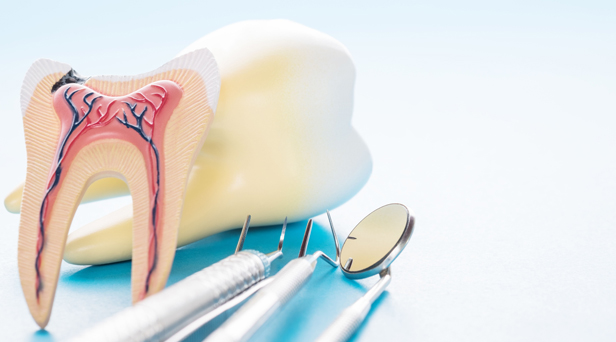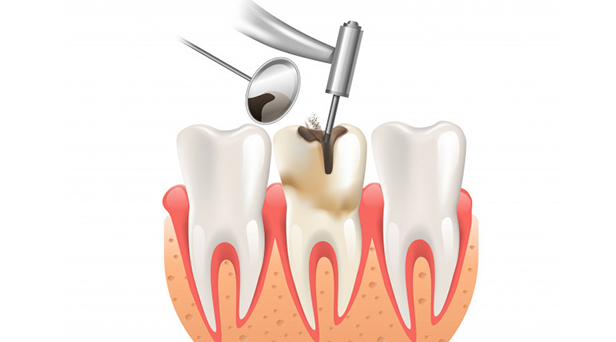Root Canals
What are Root Canals?
A root canal is performed when decay has been allowed to reach the inner most part of a tooth. This inner part is known as the pulp, and it is what houses the nerves and blood supply to the actual tooth. When the pulp is damaged by decay, or exposed because of a break, crack, or fracture to the tooth, it will need to be removed with a root canal. Root canals help to save a tooth that has been severely compromised, rather than simply extracting it.

Why might you need a Root Canal?
One of the most common reasons to need a root canal is when a tooth has become severely decayed. When decay is in its early stages, a simple filling can be placed to put a stop to it spreading. Unfortunately, aggressive decay, or cavities that were ignored for long periods of time, can eventually get to the point of compromising the inner pulp. Once this happens, a complete root canal is necessary. Oftentimes, the signs of needing a root canal include tooth-specific pain, as well as a severe sensitivity to anything that’s hot or cold. However, many patients don’t even realize they need a root canal until they come in for an exam. If a tooth has cracked or broken, the pulp can become exposed, and will need to be removed.

What makes you a candidate for Root Canals?
Most patients who need a root canal can safely have the procedure done. The procedure requires only local anesthetic, so it’s safe, convenient, and can be done in about an hour. It is one of the most common dental procedures in the field, and is done countless times every single day. Root canals may be necessary for teens and adults, as well as for geriatric patients. Some patients opt to have the tooth fully removed, but the root canal procedure is designed to retain the tooth so that the arrangement of teeth can be maintained. With the help of an exam as well as x-ray, we can tell if you’ll need to have a root canal done.
What should you expect when having a Root Canal done?
You will come into the office and be seated in a comfortable operatory. Dr. Bassiri will administer local anesthetic to numb the area. The tooth may be separated with a device known as a dental dam. The dental dam is a piece of rubber that allows Dr. Bassiri to only work on that specific tooth, preventing bacteria from getting into it. The tooth is drilled to expose the pulp, then special tools are used to remove it and clean the canals. A thin medicated liquid is then poured into the canals, and the hole that was created in the tooth is closed off with composite, the same material used for fillings. Root canals can get rid of the pain and sensitivity that occurs with the damaged pulp still intact.

We look forward to seeing you
If you need a root canal, or are interested in hearing more about this procedure, call us today, and we’ll be happy to assist you.

